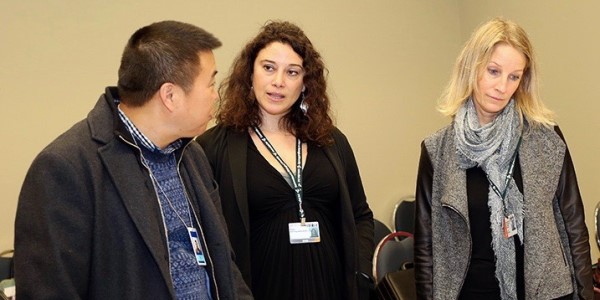Elisa Morgera, Fair and Equitable Benefit-sharing in International Law (Oxford University Press, forth. 2022)
The book will analyse fair and equitable benefit-sharing from the perspective of general international law, building on an original comparison of international law-making and implementation practices across different regimes in the areas of international environmental law, international human rights law, and international law of the sea. The book will investigate to what extent international benefit-sharing provisions are “incompletely theorized” because of: 1) lack of consensus due to fundamentally divergent agendas, as well as power and information asymmetries, among States; and 2) objective difficulties in fully developing benefit-sharing as a novel legal approach to a more intense and cosmopolitan form of cooperation. The former will serve to assess how a divergence of underlying agendas has affected ensuing implementation and prevented benefit-sharing practices on the ground from achieving equity objectives (or even contributing to documented injustices such as loss of control over resources and knowledge by vulnerable groups). The latter will help understand how spaces for the gradual development of benefit-sharing approaches and mechanisms have been created with a view to identifying actual and potential opportunities for different international benefit-sharing regimes to build on one another’s lessons learnt from a practical perspective, as well as contribute to a mutual supportiveness from a normative perspective.
Louisa Parks, Benefit-sharing from the Bottom Up: Local Experiences of a Global Concept (Routledge, 2020), open access at https://www.routledge.com/Benefit-sharing-in-Environmental-Governance-Local-Experiences-of-a-Global/Parks/p/book/9781032083919
The aim of the book is to explore a wide range of issues experienced around benefit-sharing, taking a bottom-up perspective on the basis of 5 original comparative case studies in local communities around the globe (South Africa, Namibia, Greece, Argentina and Malaysia) in different contexts (agriculture, access to land and plants, wildlife management and extractives industries). Moving away from any specific idea of benefit-sharing as defined by a single international organization or treaty, the book identifies a series of common issues experienced by local communities around benefit-sharing: recognition; clear processes; support from external groups/brokers; the organization of communities; complex governance contexts; the definition of what a ‘benefit’ is, including the importance of non-monetary benefits; and the importance of long-term relationships between equals. The book takes these common points to explore spaces for local voices at the international level, particularly in the Convention on Biological Diversity. To this end, the decisions of the CBD parties are analyzed through an innovative methodology combining deductive and inductive discourse analysis and a novel legal analytics method for text analysis. The conclusions reflect on what measures might need to be in place to grant more space and agency to local community voices around benefit-sharing, including community protocols, against the backdrop of scholarship on global civil society and deliberative democracy.
Elsa Tsioumani, Fair and Equitable Benefit-Sharing in Agriculture: Reinventing Agrarian Justice (Routledge, forth 2021), open access at https://www.routledge.com/Fair-and-Equitable-Benefit-Sharing-in-Agriculture-Open-Access-Reinventing/Tsioumani/p/book/9780367181864
The book explores the emergence and development of fair and equitable benefit-sharing in the entire agricultural production chain, from research and development, to land-use, production, and access to markets. It links international law research (Convention on Biological Diversity, International Treaty on Plant Genetic Resources for Food and Agriculture, international trade and intellectual property rights law; as well as tenure governance, land rights, and the right to food) with a socio-legal analysis of old and new communities operating from the global to the local level (the Potato Park on the Peruvian Andes; the Peliti community in Greece; participatory plant breeding programmes supported by the CGIAR Consortium; and open-source initiatives in agriculture). The objective is to critically assess the potential of fair and equitable benefit-sharing to promote global objectives including food security, sustainable agriculture, and environmental sustainability, as well as more general principles such as legal empowerment and social justice, with the overall aim to reinvent the concept of agrarian justice. Using theoretical frameworks on the commons, the book identifies opportunities and challenges linked to the conceptualization and implementation of benefit-sharing; and proposes a series of considerations to overcome shortcomings, identifying the preconditions which make a localized example a success; exploring the role and limitations of international law; and exploring the conditions that make a community successful, such as its objective or its common values.
Elisa Morgera, Corporate Environmental Accountability in International Law (second edition, Oxford University Press, 2020), open access at https://global.oup.com/academic/product/corporate-environmental-accountability-in-international-law-9780198738046?cc=gb&lang=en&#
Building on BENELEX insights, the book aims to assess the degree to which corporate environmental accountability is addressed in public international law through the identification of international standards and their implementation by international organizations. The second edition assesses the intensification of normative convergence across diverse international standard-setting efforts, in light of the prominent role played by human rights law in advancing the international debate on corporate accountability and on the relationship between human rights and the environment. The second edition also explores the incipient development of substantive, in addition to procedural, international standards at the crossroads of international environmental and human rights law. In particular, it investigates the role of fair and equitable benefit-sharing as part of businesses’ due diligence to respect internationally recognised human rights in the context of extractives and conservation projects. Furthermore, the book explores the extent to which the outcomes of international monitoring activities, which are carried out by a plethora of actors, show increasing signs of cross-fertilization.
Elisa Morgera, Oxford Commentary on the Convention on Biological Diversity (Oxford University Press, forth 2022)
Building on BENELEX insights, the book will provide a systematic reflection on the legal significance of the specificities and innovations of the Convention on Biological Diversity (CBD), focusing on the evolution of Parties’ interpretation of its obligations on the basis of relevant decisions adopted by the Conference of the Parties, and their relevance for the progressive development of international environmental law. The commentary will also assess other practice clarifying, or building on, CBD obligations in other areas of international law (notably in the areas of human rights, the law of the sea, trade and investment) and the relevance of CBD obligations for mutual supportiveness and the progressive development of international law contributing to sustainable development. and Any areas under the CBD where legal clarity is lacking. The Commentary will conclude by designing an agenda for future legal research on domestic and regional practice in the interpretation and implementation of the CBD.

